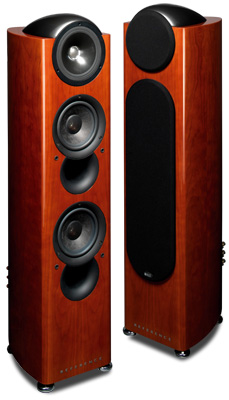 My mom always says you shouldn't buy cheap because it'll break, and buying twenty cheap frying pans (or whatever) is more expensive than buying a single, expensive one. But how true is this?
My mom always says you shouldn't buy cheap because it'll break, and buying twenty cheap frying pans (or whatever) is more expensive than buying a single, expensive one. But how true is this?I was watching an episode of The Gadget Show where they compared high-end speakers with incredibly expensive speakers. The end result was pretty even, even though the expensive speakers were more than 30 times the price of the reasonably priced ones. So the question is, exactly how much do you need to spend to get the quality you're looking for?
What I usually do is compare the price with the relative quality of what you're buying, so step one is to find something solid and statistical that you can compare. In the case of cars look at reliability, fuel consumption, get the opinion of other people who own the cars in question on the styling and maintenance. (Don't believe the brochures. They don't lie, but they spin the truth) For something like speakers, look at impudence, response range, volume and sound-to-noise levels. For computer parts such as 3D graphics cards, find a reputable website and get benchmarks. Next, find out what each item in your list will cost. Remember to include setup fees or maintenance plans.
Now set up a little spreadsheet or something and pull a graph. This is the trick part. You'll see that from low-end to mid-range the price will rise slowly but the quality increases dramatically. This is because manufacturers need to make the initial buy-in to produce the item. With cars you don't really have a car unless you've put wheels on it, welded the thing together, gotten it tested, etc. You will then notice at a certain point it levels out, where the price increases steadily as the quality goes up. Then suddenly you'll hit a wall where it becomes very expensive for relatively little gain. This is the cut between mid-range and high-end. When you're looking at cars (once again) the price difference between the normal model and the sport model is often quite a bit, but the performance gain isn't all that major especially if you'll only be commuting with it.
Once you've gotten this graph figured out, you'll have a mental idea of what you're paying for in each iteration. You can then make an educated decision as to what you can afford and if you're getting your money's worth.
I need to mention two things here. Firstly, people tend to decide on a budget and strictly stick to it. I think this is the wrong approach. Many times once I've made up my graph I see that I've either grossly under-budgeted (not realising what things cost) or there's an item just a little more expensive with a quite considerable improvement. Be willing to shift your budget, otherwise you end up buying inferior goods because you're stingy. If you can't afford it right now, but you can wait a month or two and save up, do so. You'll be much happier with your purchase once you make it. Secondly, consider what you're buying for. If you're buying small speakers so you can hear your computer go ding when something happens, you don't need surround sound or a subwoofer. If you're buying speakers for a home entertainment system it's a good idea to look at slightly more expensive speakers, but maybe a better idea to stick to smaller speakers that don't fill your living room.
I find that buying just below the mid-to-high-end cut-off delivers the best results, where products work well but aren't flashy or over the top. On my computer games run reasonably well and I didn't shovel out a fortune for it.
Oh, one last thing. If you're planning on buying something quite expensive like computer parts, something that's in a quickly evolving market, take a look at upcoming products. What you're planning to buy might soon be replaced by a newer model in the same price range with better features. In this case you can either buy the newer model, or you can wait for the shops to drop the price of the current model in order to get rid of it and stock the new. A win-win situation.
Having taken all this into account, I suggest you step back, take a breath, maybe have a cup of something soothing, then buy what feels right. Your subconscious often picks up on little things that you're not thinking of. One of the products might feel cheap in your hands but there's really nothing wrong with it. It's a good buy, but you'll always feel cheated.
One last thing to consider. This item that you're planning to buy... do you actually need it? Or do you just want it? But that's a topic for another day...
Words:
"If ignorance is bliss, why aren't there more happy people in the world?"
-Stephen Fry on QI (Quite Interesting)




No comments:
Post a Comment